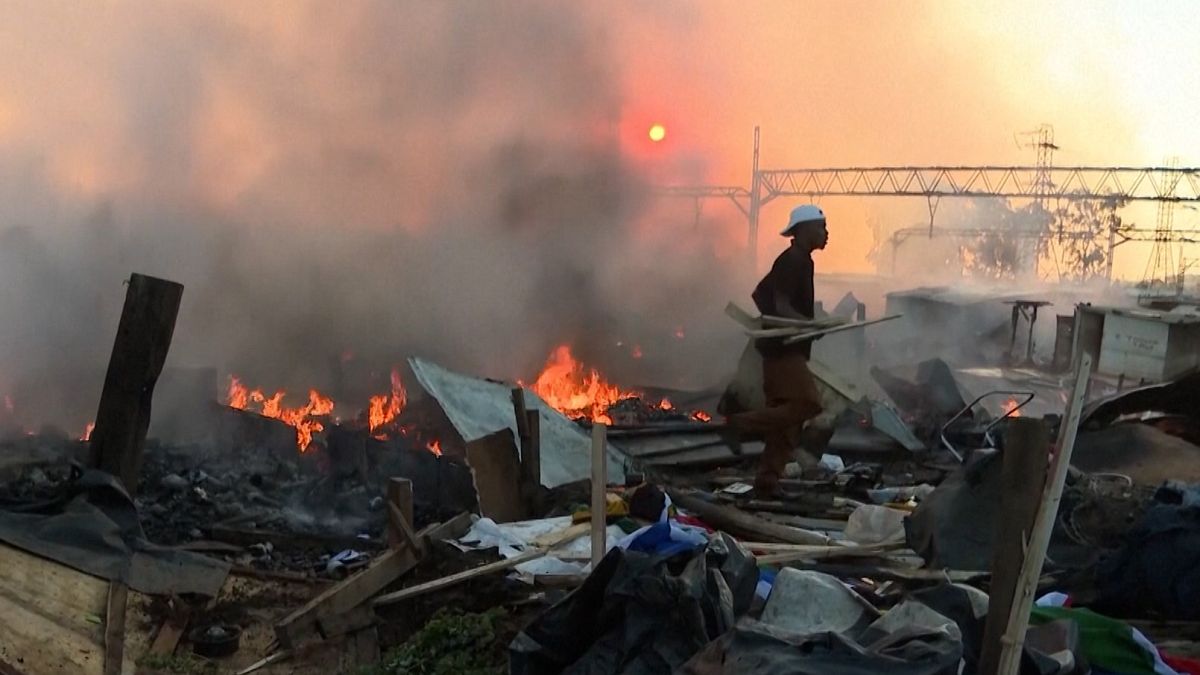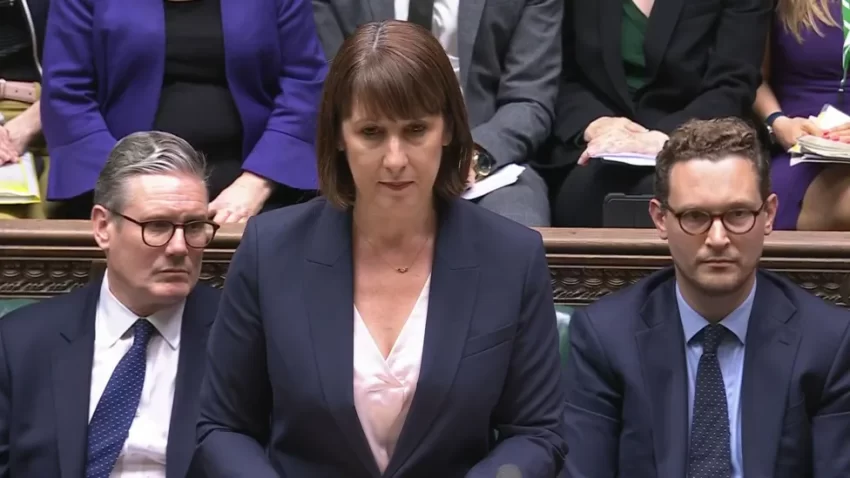The US is glad Nasrallah is gone. But bracing for more violence.
The White House’s initial reaction to the news was positive, even as it scrambled to figure out if this could spur wider war in the Middle East.
Biden administration officials were trying to figure out how to publicly respond Saturday to confirmation that Israel had killed Hassan Nasrallah, the leader of the Iran-backed Hezbollah militant group.
The initial reaction from inside the White House was positive, even though U.S. officials had been trying to convince Israel to pause its operations against Hezbollah, according to two senior administration officials.
The Biden team still believes that Hezbollah and potentially other Iranian proxies will at some point respond to the latest carnage, escalating the crisis further. But Nasrallah’s death could temporarily cripple the militant group to a point where it can’t launch any major retaliatory attacks.
News of Nasrallah’s death sent shockwaves through the Middle East, alarm bells that grew louder as Israel said it had eliminated other Hezbollah figures as well in airstrikes on Beirut, the Lebanese capital. There also were reports that Iranians with that country’s powerful Islamic Revolutionary Guard Corps were among the dead.
Israel’s extraordinary success in the past 24 hours leaves the United States, as well as many Arab countries, in something of a dilemma. The Israelis have struck devastating blows against both Hezbollah and Iran — which are major foes of America and its Arab partners. Hezbollah is responsible for killing a number of Americans.
But Israel made the move despite the U.S. repeatedly asking that it show restraint against Hezbollah and agree to a cease-fire. Now the Biden administration will have to decide whether to change tack.
The U.S. is likely to keep calling for more diplomacy as it tries to avert a broader regional war that could draw in Washington. At the same time, Israel’s actions — which it has cast as “escalating to de-escalate” — could be tough enough that Hezbollah, Iran and their friends back down, at least for a while.
The deaths of Nasrallah and other senior commanders makes it less likely the group can function with as much heft and sophistication in the short-term future, the senior officials said.
The Pentagon said Secretary of Defense Lloyd Austin spoke twice with Israeli Defense Minister Yoav Gallant on Friday about Israel’s moves in Lebanon. In those conversations, “the secretary expressed full support for Israel’s right to defend itself and its people against Iranian backed terrorist groups,” according to a statement.
A separate U.S. official familiar with the issue said a Cabinet-level interagency meeting of the Biden team was set for Saturday afternoon to discuss the situation.
Officials expect Iran’s other proxies to do what they’ve done in months past — lob hundreds of missiles at Israel — in the coming days and weeks. This includes Hamas in Gaza, the Houthis in Yemen and other militant groups based in Iraq and Syria.
Hezbollah’s rocket fire against Israel for nearly a year has already forced tens of thousands of Israelis to flee their homes in Israel’s north, one reason Israel was determined to push Hezbollah back.
Israel’s fight with Hezbollah coincides with its war against Iran-backed Hamas militants in Gaza, which began when those militants killed 1,200 people in Israel on Oct. 7. Hezbollah began its rocket fire the next day.
The Biden administration is also tracking Tehran’s reaction through intermediaries and looking for any indications that Iran is prepared to insert itself directly into the conflict, the senior official said.
On Capitol Hill, lawmakers were less focused on the potential fallout of the attack, and more on the fact that a major U.S. enemy had been killed.
“Justice has found Hassan Nasrallah, a terrorist, a leader of Iran’s murderous proxy Hezbollah, and an architect of killing Israeli men, women and children,” House Intelligence Chair Mike Turner (R-Ohio) said in a statement.
Florida Democratic Rep. Lois Frankel posted on social media: “The U.S., Israel, and the world are safer without him.”
Israeli Prime Minister Netanyahu has made clear in recent days that he plans to continue strikes on Lebanon, seeming determined to degrade Hezbollah as much as possible. That said, Israel has not declared a destruction of Hezbollah as a military aim the same way it has promised to do in its ongoing fight with Hamas militants in the Gaza Strip.
Top U.S. officials had once warned Israel — in October of last year — not to strike Nasrallah, the senior official said, warning it would increase the chances of a regional war. Now, the official said, the terrain in the Middle East is different.
The U.S. this week proposed a 21-day cease-fire between Israel and Hezbollah, one that could be extended during a negotiated peace process. The U.S. announced that proposal Wednesday, with officials saying they were confident both sides would agree.
But over the last several days, prominent Israeli officials have denounced the proposal and Prime Minister Benjamin Netanyahu in a speech at the U.N. this week said he was against any such deal.
Nasrallah’s killing could make that cease-fire deal even more moot, at least for now. Still, the two senior officials said the White House is frustrated by Israel’s response to the cease-fire plan. The Israeli government had asked the U.S. to put out the proposal publicly in order to pressure Hezbollah into diplomatic talks — yet then walked away from the deal in what was perceived as a rebuke to Biden, the senior officials said.
It’s unclear if the Israeli leadership knew it was close to killing Nasrallah at the same time that the United States put out the proposal. U.S. officials have said they were not given a heads up about the operation.
It is also unclear if Israelis will soon be able to move back to their homes in their country’s north. Part of the negotiated cease-fire proposal was supposed to move Hezbollah back at least 10 km from its positions in southern Lebanon to give Israeli citizens confidence to return.
Joe Gould, Jonathan Lemire and Robbie Gramer contributed to this report.
What's Your Reaction?




















































